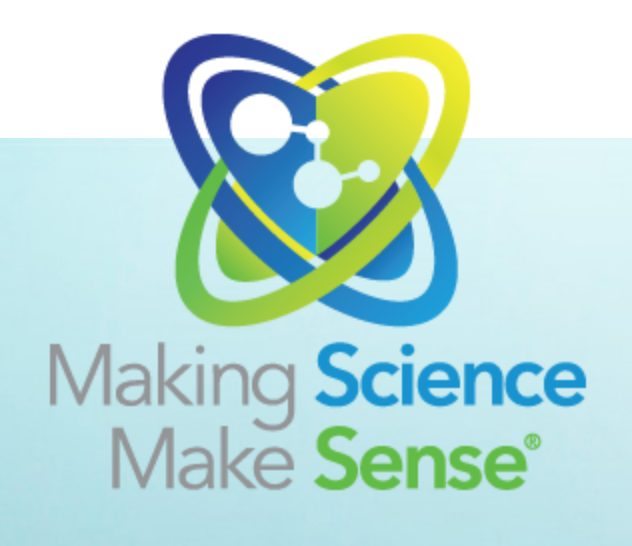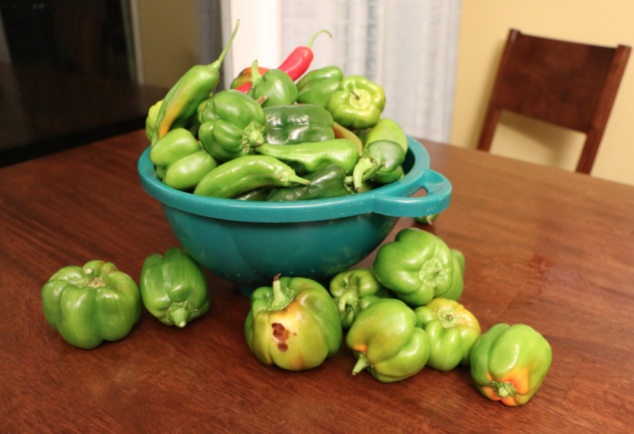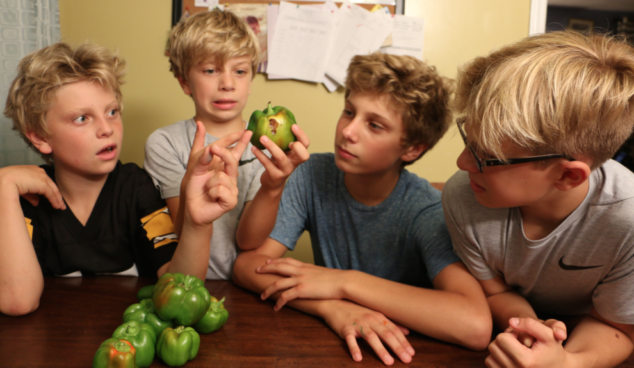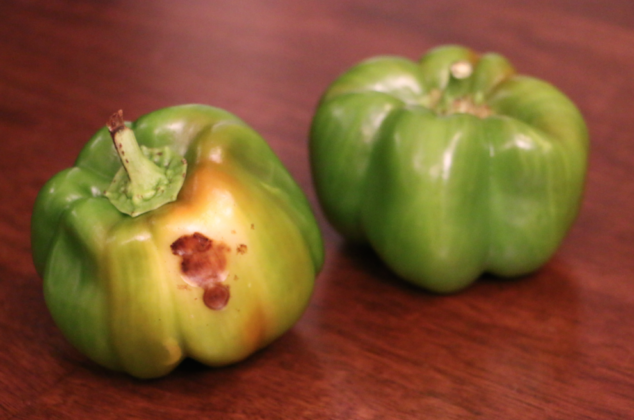Disclosure: This is a sponsored posting with Bayer. All opinions are 100% my own.
My 4 sons have a true love for science. It’s wonderful to see their scientific spark come to life at home and in school. They always have a ton of questions and hypotheses and thoughts when it comes to science. Since both my husband and I are huge science lovers, it’s something that we love talking about at home. Their questions fuel our scientific spirit! When they ask questions like, “How is that possible?” or “Why does this happen?” or “Can this be done?” it’s exciting to see these types of questions answered by simple experiments at home.
Science. It really is a special subject for kids.
As a parent and the daughter of 2 former-educator’s (my parents were both teachers for over 20+ years!), I know the importance first-hand of making sure you’re getting students interested in certain subjects. Science is one of those special subjects that is so incredible to dive into and explore as a student. I absolutely love seeing company’s that I love and trust take a stand to help initiate and create excitement about learning for students.
Bayer is one of those special companies doing something pretty remarkable.

Bayer’s Making Science Make Sense® (MSMS) is a company-wide, award-winning initiative that advances science literacy across the United States. MSMS allows students to learn science by doing science through hands-on, inquiry-based experiences that involve observing, experimenting, hypothesizing, analyzing and testing. This speaks right to the core of science and I love it! Bayer creates exciting, hands-on lessons for kids starting in elementary school to ignite their scientific curiosity at a young age. With 4 sons who are 8, 9, 10 and 11… this is music to my ears! I adore that Bayer wants to teach and excite and inspire students. They are showcasing how science can be fun and exciting to learn about and that (truly) science is everywhere.
What I love is that there are science lessons in the everyday, beyond traditional science activities. It’s the unexpected which makes science extra fun! Bayer’s Making Science Make Sense is helping to make science more approachable and accessible, less intimidating. Bayer helping students discover the world around them through science! Yes… science is everywhere! The important thing from Bayer to note is that studies show that timing is the best chance to get students interested in the subject and to foster their science literacy skills. Some interesting and fun results from the 2016 Bayer Making Science Make Sense® initiative Back-to-School Survey (just released!) reveals that parents can do more to nurture their children’s innate interest in science by leveraging everyday activities, such a cooking, doing the laundry, or exploring in the backyard, as science lessons for the family.
2 insights really spoke to me from the survey:
- Parents say their top source of ideas for keeping their children interested in science are blogs and websites (49%), and nearly a third (32%) are inspired by the science behind everyday activities.
- The survey also revealed that nearly all (95%) parents agree that it would be helpful to have tips for turning simple activities into science learning opportunities for their children.
Which… leads me to how science plays a role in the everyday in the McClelland household. My sons helped my husband create a gigantic garden in our backyard 4 years ago. Our garden produces a ton of produce each and every day throughout the spring/summer. It’s become a passion for my husband and my sons.
Every night my husband brings in a basket or 2 (or 3!) of produce right from our backyard. It’s always exciting to see.

Here’s where the science comes into play for my sons. With all the produce my husband brings into the house, many times there are pieces that just go bad and rotten!
The question is always posed to my husband, “Dad? How does produce go bad?”

It’s a good question because with all the produce we grow and as much as we eat, freeze or otherwise preserve, inevitably some goes bad.
This was a perfect opportunity for my husband to explain to the kids some extracurricular science! The best part, they can bring the findings back to their classroom and explain, too!
So how does produce go bad?

Produce is alive even after you pick it and continues to give off oxygen and take in carbon dioxide. Refrigeration helps slow down this process of respiration but at some point things still go south.
Fruits and vegetables begin to give off an odorless gas called ethylene as they begin to rot. When one piece of produce begins emitting it, the others sense it and begin emitting it themselves. This causes them to quickly ripen and then rot.
This is where the term one bad apple will spoil the bunch comes from.
Bayer has its foundation in science and innovation, which gives them a unique understanding of the integral role science plays in everyday life. Bayer and its MSMS partners are dedicated to changing the way science is taught and learned both in and out of the classroom.
Pretty amazing, right!?
Some additional interesting info for families: Tips for turning your house into a science lab for kids.




1 Comments
Comments are closed.